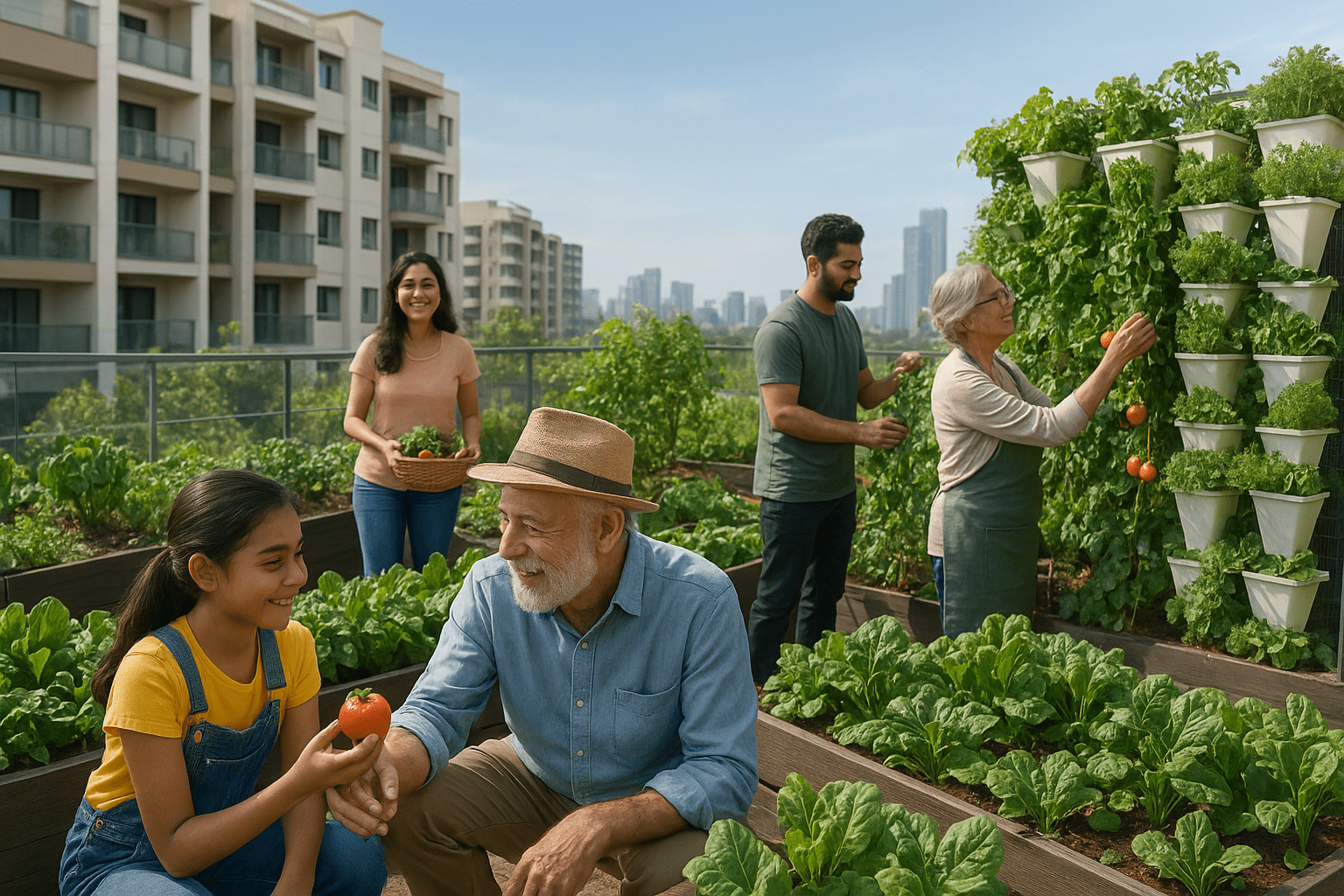Urban Farming in Residential Complexes: A Growing Trend in 2025
The global push toward sustainability is giving rise to new lifestyle-driven real estate trends, and urban farming is one of the most fascinating developments of 2025. Residential complexes are now integrating dedicated spaces for farming, rooftop gardens, vertical farms, and hydroponic setups, bringing fresh produce directly to residents’ homes.
Urban farming in housing societies offers multiple benefits. It ensures residents have access to organic, pesticide-free food while reducing dependence on long supply chains. It fosters community engagement as neighbors come together to nurture crops, share produce, and participate in sustainability initiatives.
Developers are recognizing the value of incorporating farming zones in their projects. For homebuyers, a property that offers fresh vegetables, herbs, and fruits on-site is not only attractive but also aligned with the growing preference for wellness-focused living. Urban farms also double up as green zones that improve air quality and reduce ambient temperature within the community.
From hydroponics to aquaponics, technology is making urban farming more efficient and space-friendly. In metros like Mumbai, where land is scarce, vertical farming allows maximum yield with minimal space. Moreover, with food inflation on the rise, residents see urban farming as both a health benefit and a cost-saving measure.
For investors, projects featuring urban farming enjoy higher demand and stronger resale value, particularly among eco-conscious families and millennials seeking sustainable lifestyles.
Urban farming is not just a novelty, it’s becoming a lifestyle upgrade that aligns with the global movement toward self-sufficiency and eco-friendly living.
Contact Upgrade Realty today to find residential projects in Mumbai that combine modern living with sustainable features like urban farming.

